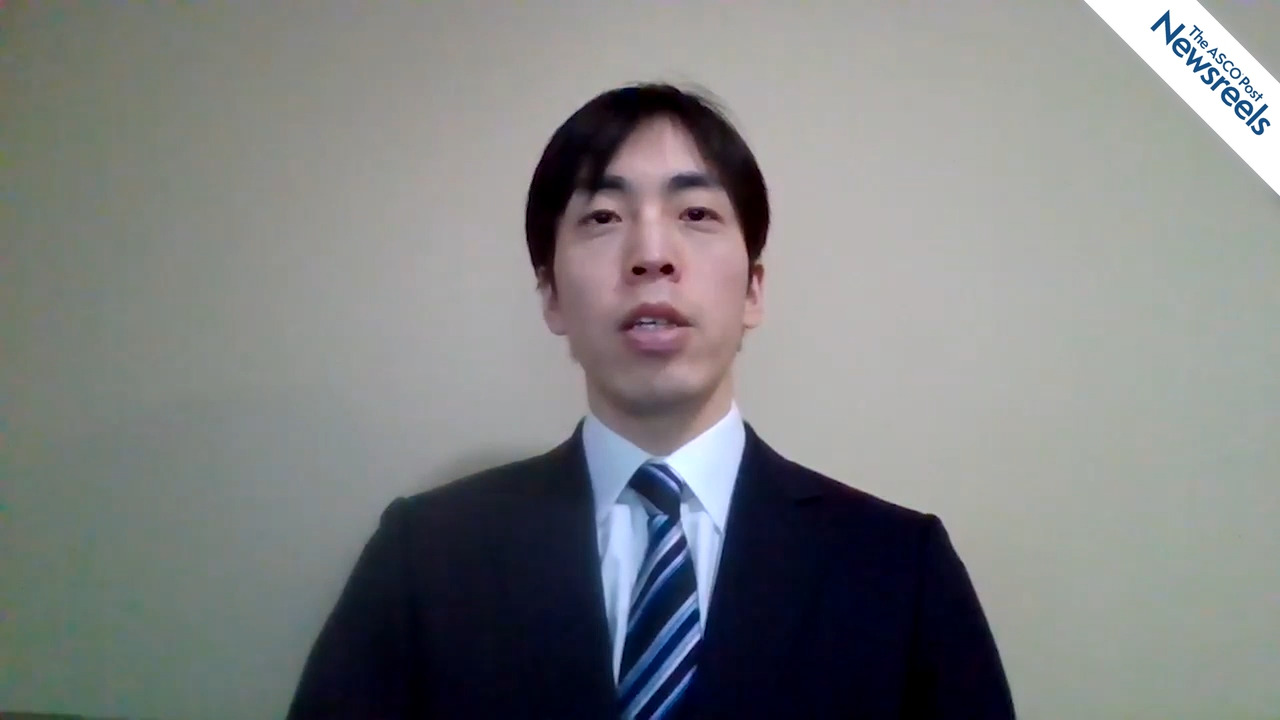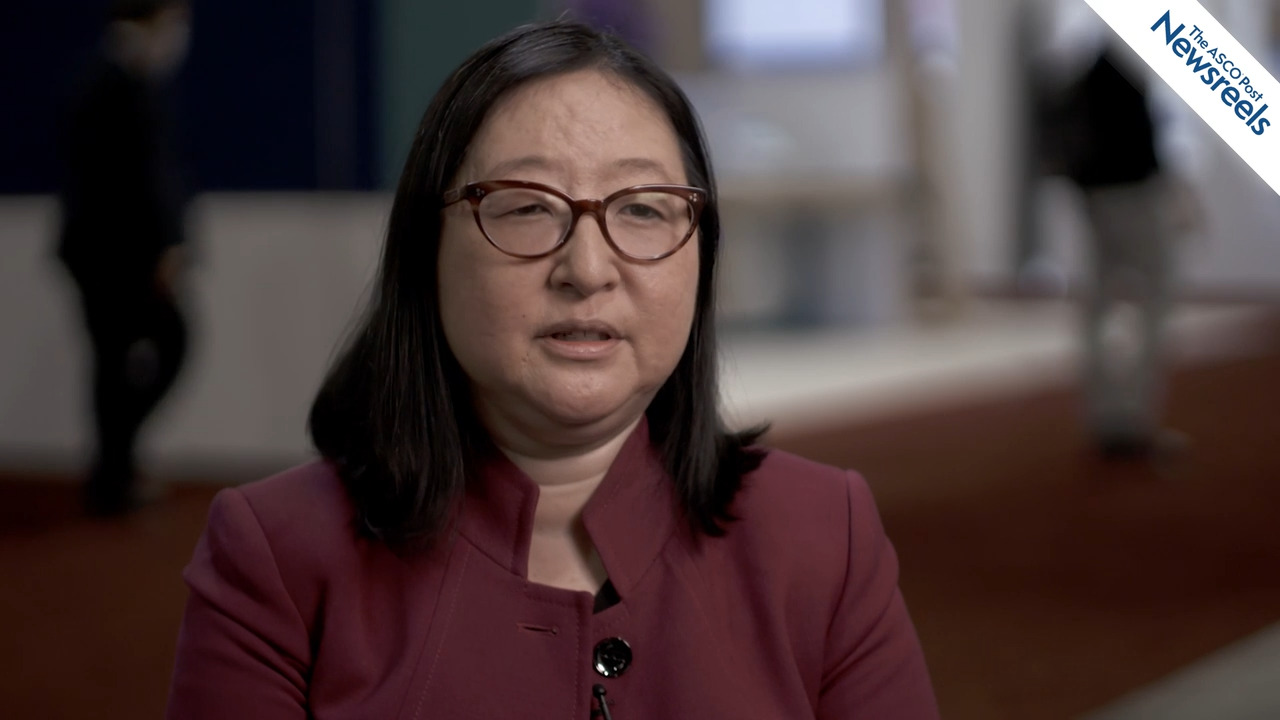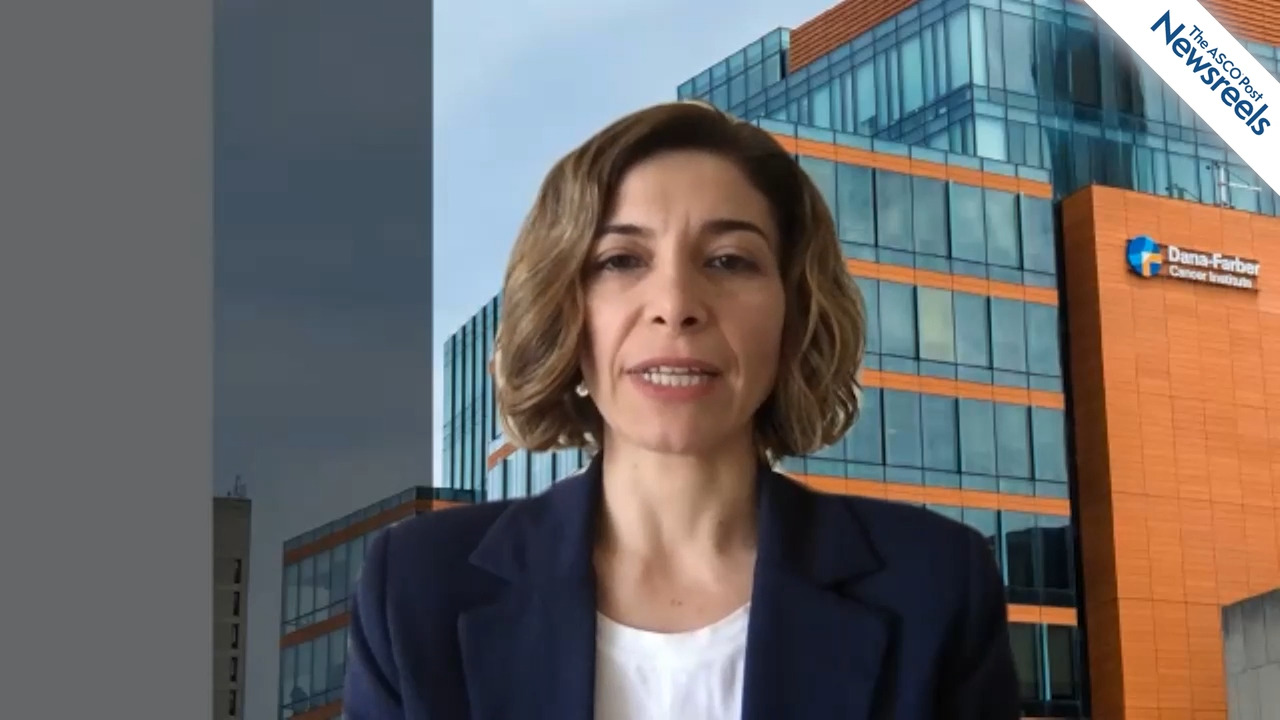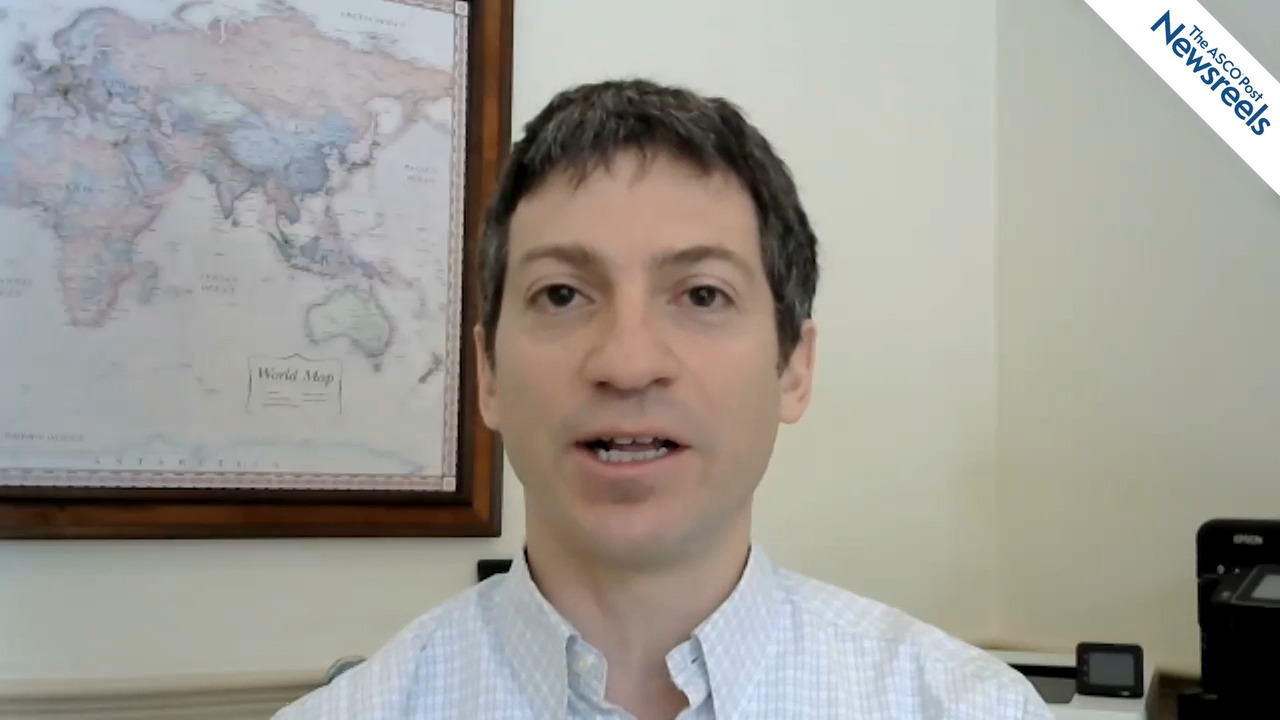Talha Badar, MD, on TP53-Mutated AML and the Impact of Allogeneic Stem Cell Transplantation on Survival
2021 ASH Annual Meeting & Exposition
Talha Badar, MD, of the Mayo Clinic, discusses the near-universal poor outcomes for patients with TP53-mutated acute myeloid leukemia and the findings that show allogeneic stem cell transplantation appears to improve the long-term survival in a subset of these patients. Effective therapies may successfully bridge patients to transplant and prolong survival for those who are transplant-ineligible (Abstract 797).
The ASCO Post Staff
Romanos Sklavenitis-Pistofidis, MD, of Dana-Farber Cancer Institute, discusses study findings on a next generation of clinical assays to assess both tumor biology and immune state, as well as common clinical biomarkers in the marrow or blood. These biomarkers may accurately predict which patients with smoldering multiple myeloma might benefit from early treatment, monitor response to immunotherapy, and improve patient outcomes (Abstract 330).
The ASCO Post Staff
Masayuki Umeda, MD, of St. Jude Children's Research Hospital, discusses his research which showed that UBTF-TD (upstream binding transcription factor-tandem duplications) define a unique subtype of acute myeloid leukemia that previously lacked a clear oncogenic driver. UBTF-TD is associated with FLT3-ITD and WT1 mutations, adolescent age, and poor outcomes. These alterations are critical for future risk-stratification for this patient cohort.
The ASCO Post Staff
Eunice S. Wang, MD, of Roswell Park Comprehensive Cancer Center, discusses phase III results showing that gilteritinib and azacitidine led to significantly higher composite complete response rates in patients with newly diagnosed FLT3-mutant acute myeloid leukemia who are ineligible for intensive induction chemotherapy. Overall survival was similar to that of azacitidine alone (Abstract 700).
The ASCO Post Staff
Anil Aktas-Samur, PhD, of Dana-Farber Cancer Institute, discusses study findings on the genomic characterization of non-progressor smoldering multiple myeloma, results that may provide a molecular definition of the disease as well as its risk-driving features. Combining this low-risk model with current high-risk models may possibly improve clinical trials for patients with this early precursor to myeloma (Abstract 545).
The ASCO Post Staff
Matthew S. Davids, MD, of Dana-Farber Cancer Institute, discusses phase II results from a multicenter study that showed the efficacy of ibrutinib plus fludarabine, cyclophosphamide, and rituximab in younger, fit patients with chronic lymphocytic leukemia who desire the possibility of a functional cure with time-limited therapy (Abstract 640).





